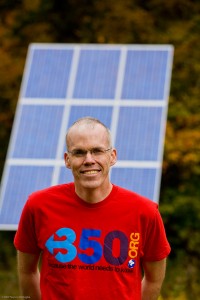Today’s blog post comes from alumna Hannah Root (MSoE ’15), who reports on her recent experience of presenting the results of her work this past summer in Joan Grossman’s elective on Environmental Video Production.
“In November I had the enormous honor to attend the Lake Champlain International Film Festival in Plattsburgh, NY to see my final video project from the Middlebury School of the Environment presented on the big screen. This project was part of Joan Grossman’s Environmental Video Production elective, and I was able to collaborate with two classmates (Ben Harris, Middlebury ’15 and Alice, Harvard ’15) to produce a 5-minute video. Our topic started as a portrait of the new pop-up park in Middlebury, a temporary play structure designed and built by UVM students, and it evolved into a conversation about community spaces and their standards. This was my first experience with film production and it was so rewarding to work collaboratively with a group to create an end product that we were all proud to share.
“Our film was shown in the agriculture block alongside three other films, including “Small Farm Rising” by Ben Stechschulte. All of the films in this block shared different visions for improving our local communities, be it through growing good food or creating play spaces for children. Afterwards, I was able to speak on a panel alongside the producers and some of the farmers in the films to delve into some of the common themes and the process of making our films. The whole afternoon was an amazing experience for me as a first-time filmmaker. I am so thankful to Joan Grossman for helping my group produce a film that I am proud to share, and Curt Gervich for connecting us with the organizers of the film festival!”
Congratulations, Hannah, Ben, and Alice, on having your film included in an international film festival!
